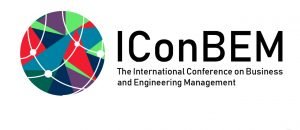The Importance of Entrepreneurship in a Post-Covid World
Entrepreneurial activity is a key driver of the global economy, and micro-, small-, and medium-sized enterprises (MSMEs) represent fascinating opportunities for research. The pandemic has created both serious challenges and real opportunities for MSNEs, altering customers’ expectations and affecting the ways in which businesses can and do operate. Addressing the challenges – and embedding the positive developments – will require cooperation and coordination among a wide variety of stakeholders.
Alternatives To Hierarchical Organizing
Recently, there has been a growing interest in a flatter, less-hierarchical forms of organizing. Gary Hamel predicted the death of bureaucracy in 2011 in a famous Harvard Business Review article. In 2014 Frederic Laloux published a global bestseller “Reinventing organizations” where he introduced pioneers of less-hierarchical organizations, the Dutch home care provider Buurtzorg and the French manufacturing company Favi, for example. These examples, as many other companies that have adopted post-bureaucratic or even boss-less modes of organizing have provided promising examples of how this might result in increased job engagement, profitability and customer satisfaction.
Organizations that challenge the traditional hierarchical structure have also been in the interest of recent academic research. Research has shown that post-bureaucratic, self-managing organizations solve universal problems of organizing in a different way than traditional hierarchies. Instead of relying on managerial command and control, these organizations use shared decision-making and fluid organizing to achieve company goals. Self-managing organizations decentralize authority so that no employee can expect that her decision will be overrun by someone only because of a higher position in the organization chart (Lee & Edmondson, 2017). This will inevitably result in new configurations of managerial control and employee autonomy.
Based on previous research in organization science, case examples from all over the world and our Finnish research group’s findings, this keynote will address the questions of “why and how” of post-bureaucratic organizing.
Supply Chain Resilience in Times of Disruption: The Role of Collaboration
The COVID-19 pandemic has highlighted the vulnerability of global supply chains and reinforced the importance of building supply chain resilience to withstand future shocks. Research has demonstrated that companies cannot work in isolation in achieving supply chain resilience. Collaboration becomes the foundation of the resilience building block. Companies need to build culture of collaboration within their infrastructure that can adapt and better respond to disruptions. However, building collaboration is not easy tasks, challenges are always present.




